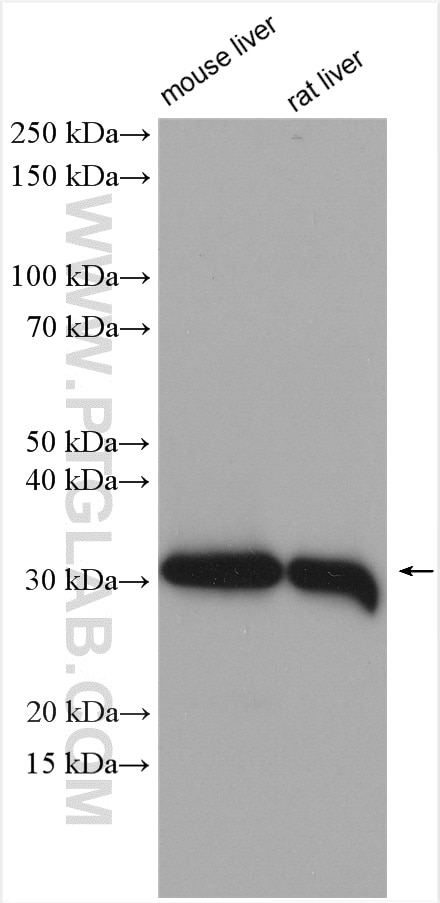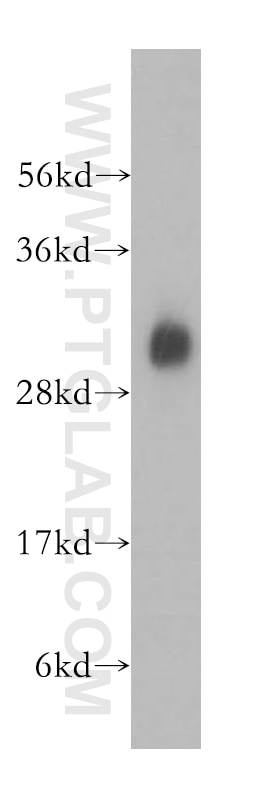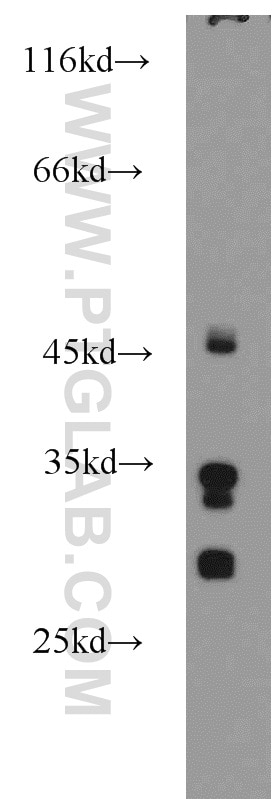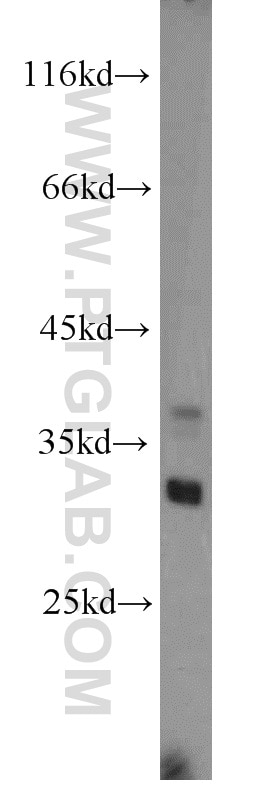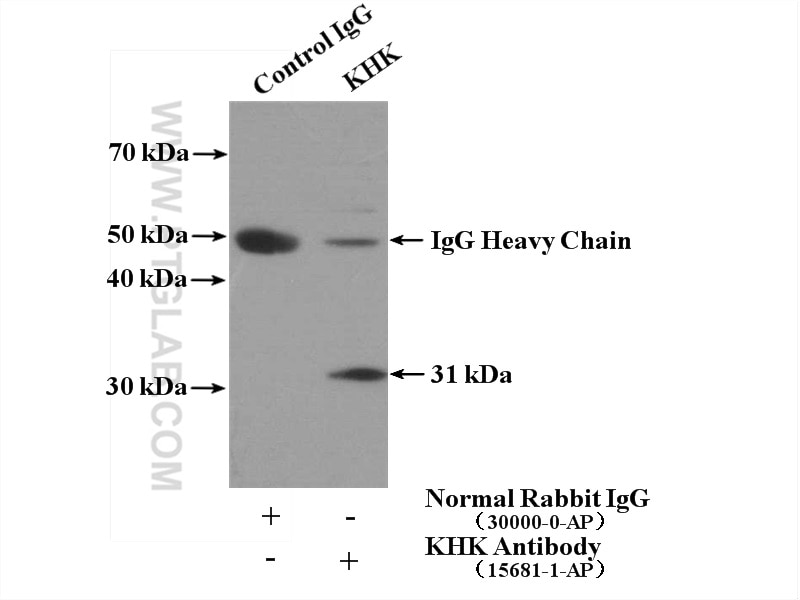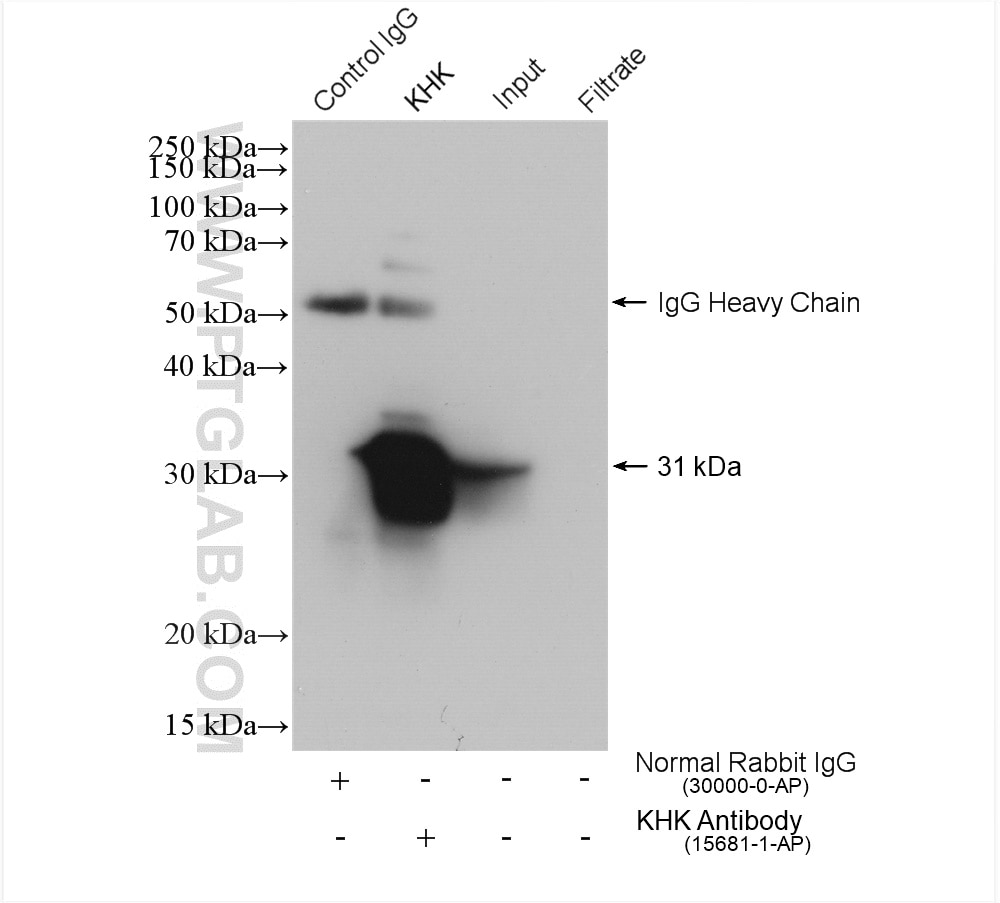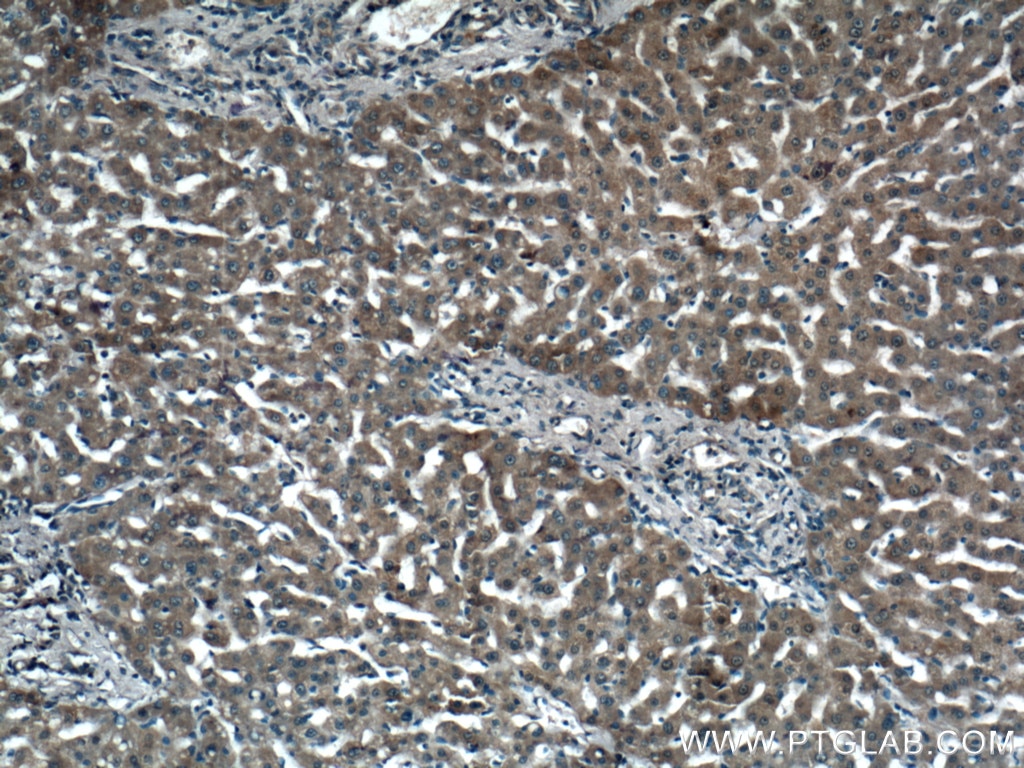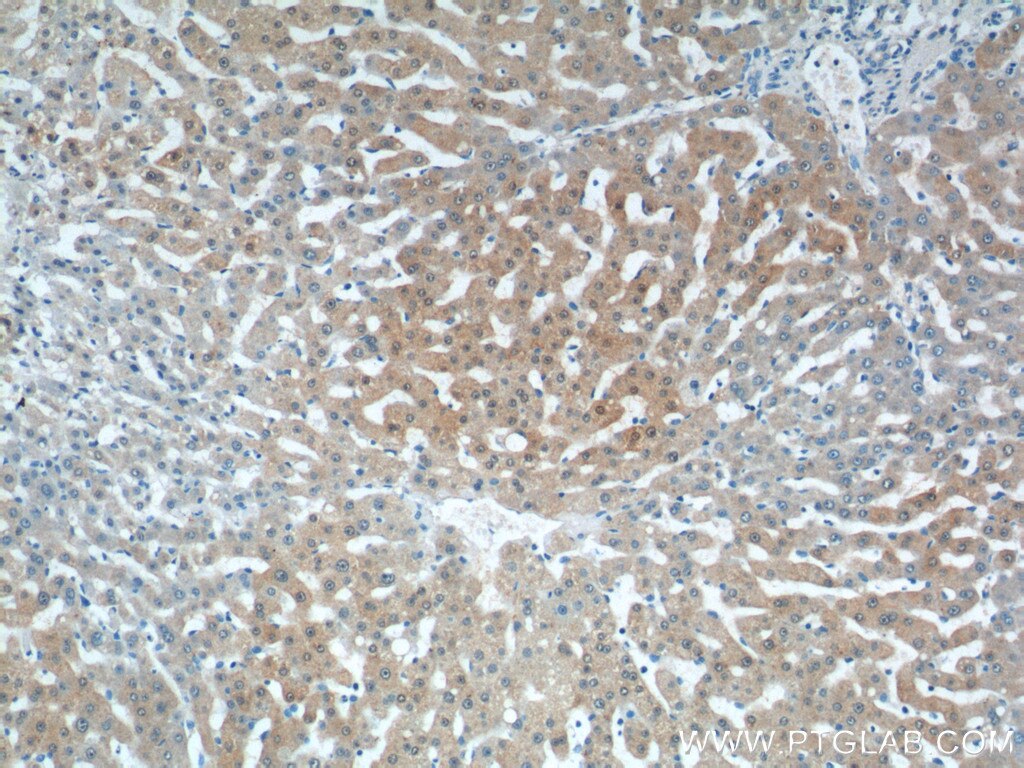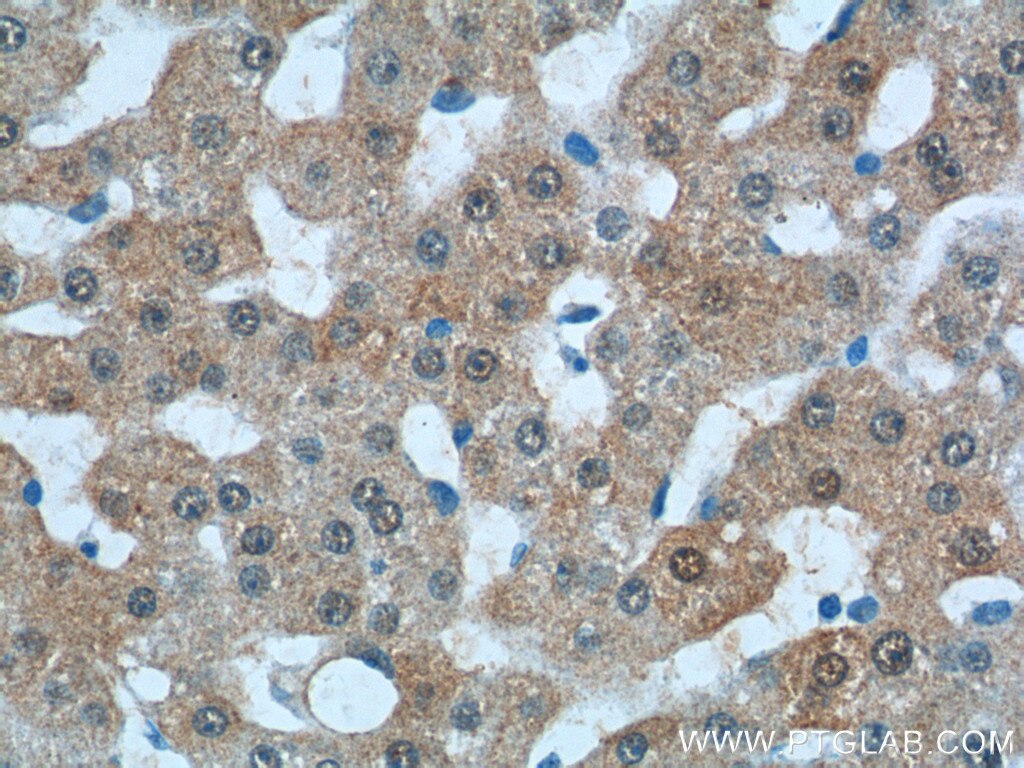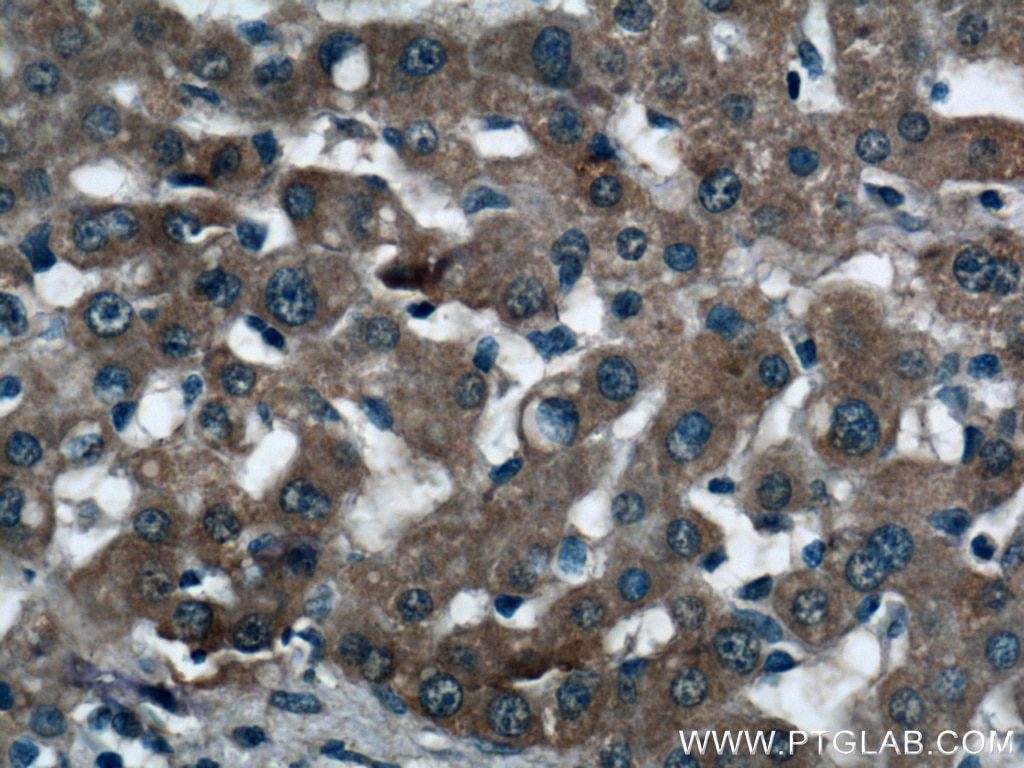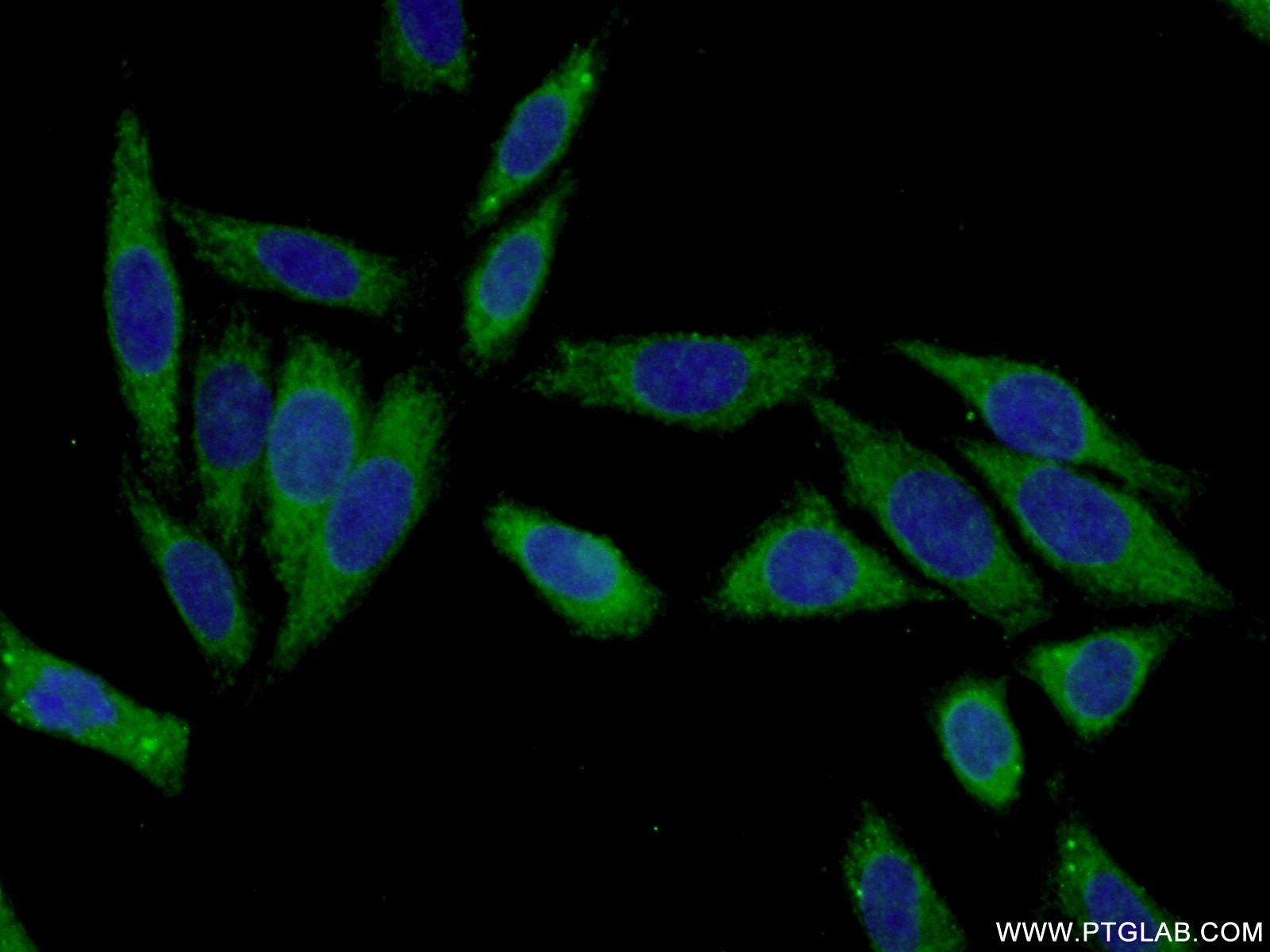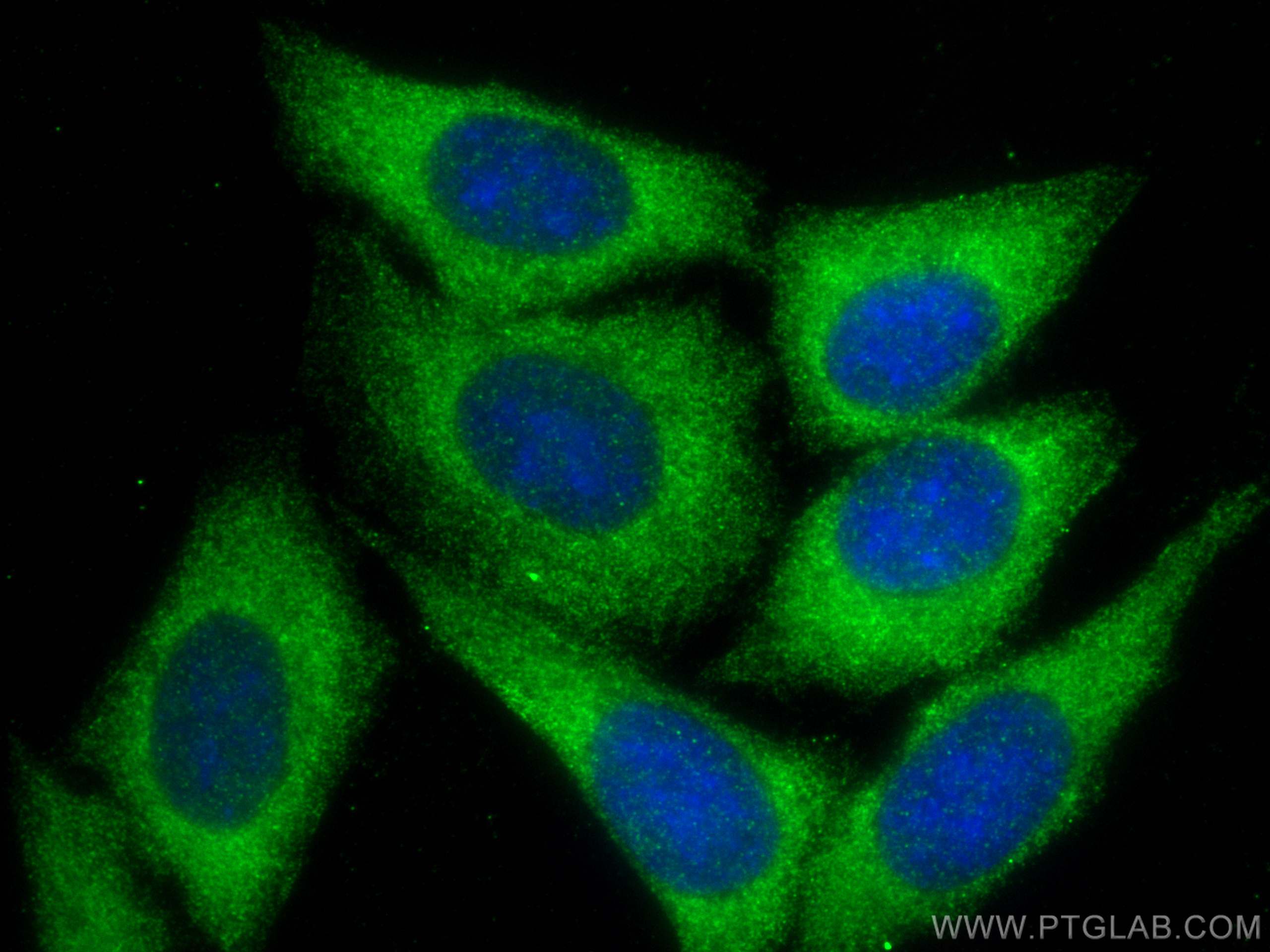- Phare
- Validé par KD/KO
Anticorps Polyclonal de lapin anti-KHK
KHK Polyclonal Antibody for WB, IHC, IF/ICC, IP, ELISA
Hôte / Isotype
Lapin / IgG
Réactivité testée
Humain, rat, souris
Applications
WB, IHC, IF/ICC, IP, ELISA
Conjugaison
Non conjugué
N° de cat : 15681-1-AP
Synonymes
Galerie de données de validation
Applications testées
| Résultats positifs en WB | tissu hépatique de souris, tissu hépatique de rat, tissu hépatique humain |
| Résultats positifs en IP | tissu hépatique de souris, cellules HepG2 |
| Résultats positifs en IHC | tissu hépatique humain il est suggéré de démasquer l'antigène avec un tampon de TE buffer pH 9.0; (*) À défaut, 'le démasquage de l'antigène peut être 'effectué avec un tampon citrate pH 6,0. |
| Résultats positifs en IF/ICC | cellules HepG2, |
Dilution recommandée
| Application | Dilution |
|---|---|
| Western Blot (WB) | WB : 1:500-1:2000 |
| Immunoprécipitation (IP) | IP : 0.5-4.0 ug for 1.0-3.0 mg of total protein lysate |
| Immunohistochimie (IHC) | IHC : 1:200-1:800 |
| Immunofluorescence (IF)/ICC | IF/ICC : 1:50-1:500 |
| It is recommended that this reagent should be titrated in each testing system to obtain optimal results. | |
| Sample-dependent, check data in validation data gallery | |
Applications publiées
| KD/KO | See 1 publications below |
| WB | See 9 publications below |
| IHC | See 1 publications below |
Informations sur le produit
15681-1-AP cible KHK dans les applications de WB, IHC, IF/ICC, IP, ELISA et montre une réactivité avec des échantillons Humain, rat, souris
| Réactivité | Humain, rat, souris |
| Réactivité citée | rat, Humain, souris |
| Hôte / Isotype | Lapin / IgG |
| Clonalité | Polyclonal |
| Type | Anticorps |
| Immunogène | KHK Protéine recombinante Ag8182 |
| Nom complet | ketohexokinase (fructokinase) |
| Masse moléculaire calculée | 298 aa, 33 kDa |
| Poids moléculaire observé | 33-35 kDa |
| Numéro d’acquisition GenBank | BC006233 |
| Symbole du gène | KHK |
| Identification du gène (NCBI) | 3795 |
| Conjugaison | Non conjugué |
| Forme | Liquide |
| Méthode de purification | Purification par affinité contre l'antigène |
| Tampon de stockage | PBS with 0.02% sodium azide and 50% glycerol |
| Conditions de stockage | Stocker à -20°C. Stable pendant un an après l'expédition. L'aliquotage n'est pas nécessaire pour le stockage à -20oC Les 20ul contiennent 0,1% de BSA. |
Informations générales
Ketohexokinase catalyzes conversion of fructose to fructose-1-phosphate, it is the first enzyme with a specialized pathway that catabolizes dietary fructose. Fructose metabolism seems to provide cancer cells with the supplementary fuel required for proliferation and metastasis.
Protocole
| Product Specific Protocols | |
|---|---|
| WB protocol for KHK antibody 15681-1-AP | Download protocol |
| IHC protocol for KHK antibody 15681-1-AP | Download protocol |
| IF protocol for KHK antibody 15681-1-AP | Download protocol |
| IP protocol for KHK antibody 15681-1-AP | Download protocol |
| Standard Protocols | |
|---|---|
| Click here to view our Standard Protocols |
Publications
| Species | Application | Title |
|---|---|---|
Cell Metab High dietary fructose promotes hepatocellular carcinoma progression by enhancing O-GlcNAcylation via microbiota-derived acetate | ||
Adv Sci (Weinh) NAT10/ac4C/FOXP1 Promotes Malignant Progression and Facilitates Immunosuppression by Reprogramming Glycolytic Metabolism in Cervical Cancer | ||
Brain C9orf72 expansion within astrocytes reduces metabolic flexibility in amyotrophic lateral sclerosis. | ||
Cancer Sci Identification of TPI1 As a potential therapeutic target in pancreatic cancer with dependency of TP53 mutation using multi-omics analysis | ||
Endocrinology Hepatic but not intestinal FBP1 is required for fructose metabolism and tolerance | ||
Biochem Biophys Res Commun Ketohexokinase is involved in fructose utilization and promotes tumor progression in glioma. |
